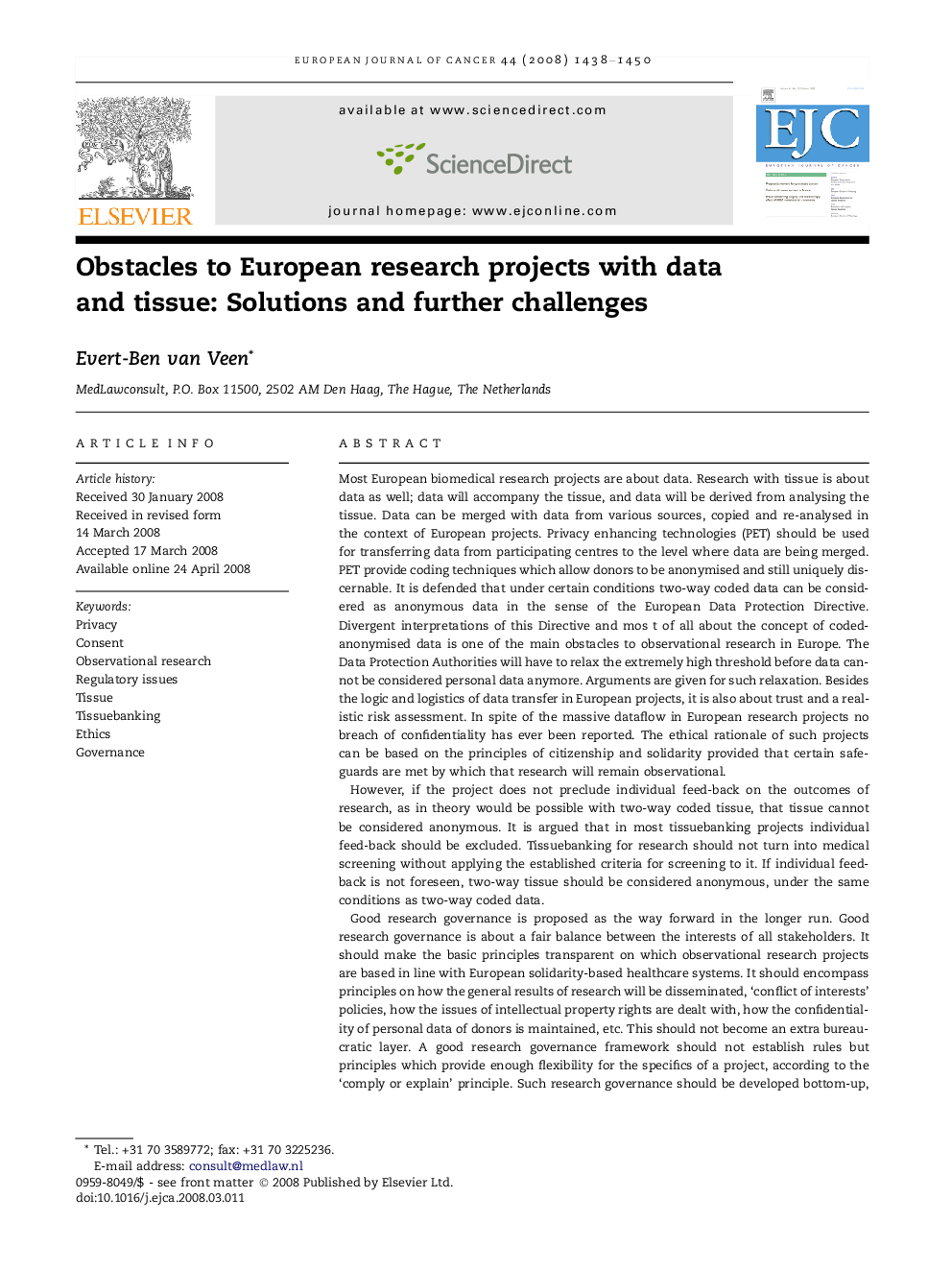| کد مقاله | کد نشریه | سال انتشار | مقاله انگلیسی | نسخه تمام متن |
|---|---|---|---|---|
| 2125736 | 1547247 | 2008 | 13 صفحه PDF | دانلود رایگان |

Most European biomedical research projects are about data. Research with tissue is about data as well; data will accompany the tissue, and data will be derived from analysing the tissue. Data can be merged with data from various sources, copied and re-analysed in the context of European projects. Privacy enhancing technologies (PET) should be used for transferring data from participating centres to the level where data are being merged. PET provide coding techniques which allow donors to be anonymised and still uniquely discernable. It is defended that under certain conditions two-way coded data can be considered as anonymous data in the sense of the European Data Protection Directive. Divergent interpretations of this Directive and most of all about the concept of coded-anonymised data is one of the main obstacles to observational research in Europe. The Data Protection Authorities will have to relax the extremely high threshold before data cannot be considered personal data anymore. Arguments are given for such relaxation. Besides the logic and logistics of data transfer in European projects, it is also about trust and a realistic risk assessment. In spite of the massive dataflow in European research projects no breach of confidentiality has ever been reported. The ethical rationale of such projects can be based on the principles of citizenship and solidarity provided that certain safeguards are met by which that research will remain observational.However, if the project does not preclude individual feed-back on the outcomes of research, as in theory would be possible with two-way coded tissue, that tissue cannot be considered anonymous. It is argued that in most tissuebanking projects individual feed-back should be excluded. Tissuebanking for research should not turn into medical screening without applying the established criteria for screening to it. If individual feed-back is not foreseen, two-way tissue should be considered anonymous, under the same conditions as two-way coded data.Good research governance is proposed as the way forward in the longer run. Good research governance is about a fair balance between the interests of all stakeholders. It should make the basic principles transparent on which observational research projects are based in line with European solidarity-based healthcare systems. It should encompass principles on how the general results of research will be disseminated, ‘conflict of interests’ policies, how the issues of intellectual property rights are dealt with, how the confidentiality of personal data of donors is maintained, etc. This should not become an extra bureaucratic layer. A good research governance framework should not establish rules but principles which provide enough flexibility for the specifics of a project, according to the ‘comply or explain’ principle. Such research governance should be developed bottom-up, by researchers together with the most interested stakeholders, patient organisations. Patients as ‘biosocial citizens’ are the natural allies of researchers against the ‘paternalistic attitudes’ of some ethicists and regulators.
Journal: European Journal of Cancer - Volume 44, Issue 10, July 2008, Pages 1438–1450